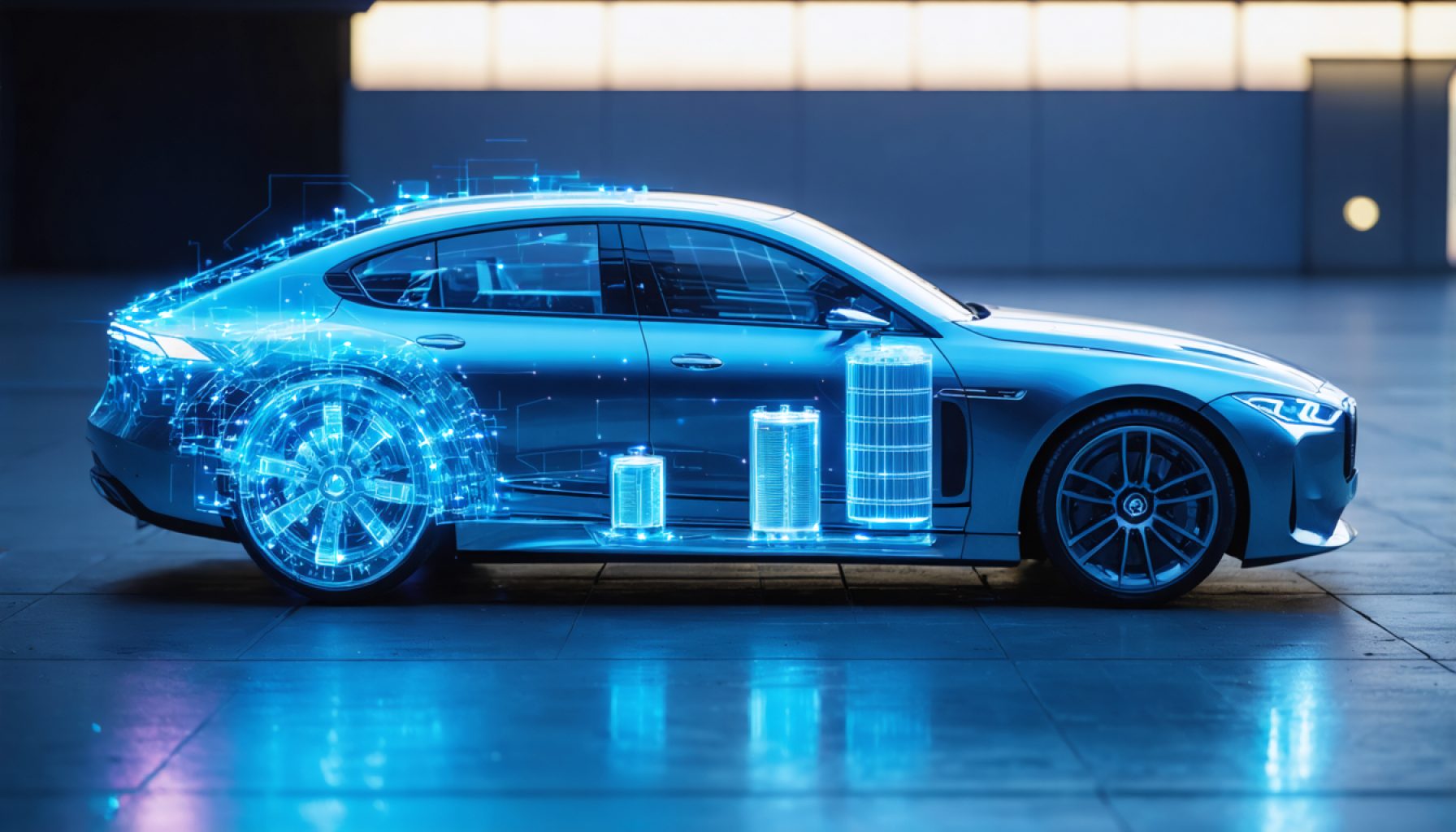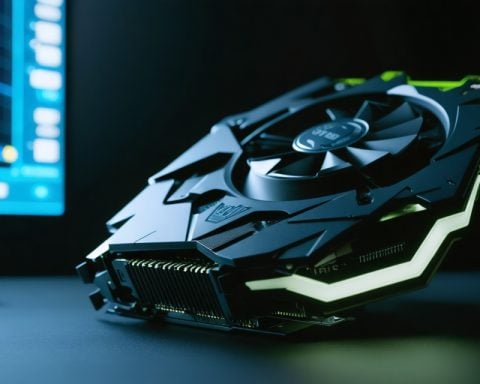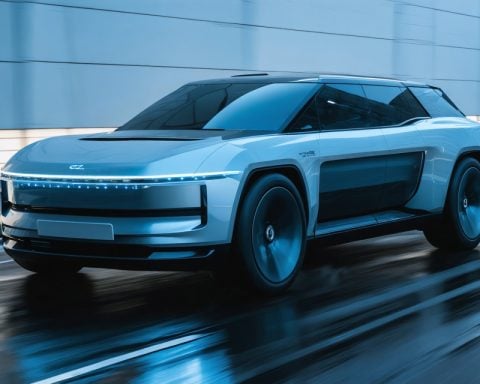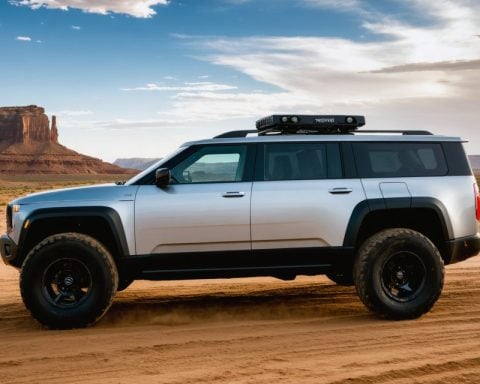- Mercedes-Benz is pioneering solid-state battery technology, achieving a 25% range increase, potentially enabling up to 621 miles on a single charge.
- Collaborations with Factorial Energy and Mercedes AMG High Performance Powertrains contribute to these groundbreaking advancements.
- BMW is introducing high-voltage batteries in their Neue Klasse vehicles, enhancing energy density, charging speed, and range by 30%.
- BMW’s new battery technology supports bidirectional charging, offering enhanced flexibility for everyday use.
- Both automakers are spearheading innovations that not only improve EV efficiency but also integrate electric vehicles into daily life more seamlessly.
- The electrification momentum by Mercedes-Benz and BMW highlights a promising future for long-distance and practical EV travel.
The electric vehicle landscape is transforming at lightning speed, sparking excitement among automakers and enthusiasts alike. Recently, two automotive giants, Mercedes-Benz and BMW, have embarked on electrifying projects aimed at revolutionizing battery technology, stirring a buzz that could redefine the EV experience.
Mercedes-Benz has ventured boldly into the realm of solid-state batteries, igniting the imagination of tech lovers everywhere. After rigorous lab testing in their Stuttgart headquarters, the esteemed carmaker unleashed a modified EQS Sedan for road trials, marking a pivotal moment in EV evolution. Collaborating with Massachusetts-based Factorial Energy and Formula1-proven experts at Mercedes AMG High Performance Powertrains, Mercedes reports these new batteries are not just lighter but deliver a staggering 25% range increase. Picture this: a sleek vehicle silently gliding along, capable of covering up to 621 miles on a single charge.
Meanwhile, BMW refuses to idle in the slow lane. With a cutting-edge high-voltage battery soon debuting in its Neue Klasse vehicles, BMW delivers impressive strides in energy density, charging speed, and range. Imagine sitting in a toasty BMW, keeping warm during a harsh winter blackout while the vehicle’s new battery powers on. The numbers are striking, with a 30% boost in both charging efficiency and range, making the idea of long-distance EV travel all the more enticing.
But what about practicality? BMW’s foresight includes bidirectional charging capabilities for its sixth-generation technology, offering invaluable flexibility both at home and en route. Electric vehicles are not only more efficient than ever; they promise to become integral parts of our everyday lives.
The takeaway? As Mercedes-Benz and BMW crack the code on battery innovation, the road ahead shines brighter—and longer—affirming that the electric dream is rapidly becoming a practical reality.
The Future of Electric Vehicles: How Mercedes-Benz and BMW Are Redefining Innovation
How-To Steps & Life Hacks: Maximizing Your EV Experience
1. Planning Your Trips: Utilize apps like PlugShare or ChargePoint to locate charging stations along your route. This saves time and ensures a smooth journey.
2. Battery Health: Keep charge levels between 20% and 80% to extend battery life, as suggested by several automotive experts.
3. Eco-Friendly Driving: Use regenerative braking to enhance range. Many electric vehicles have an eco-driving mode that automatically optimizes energy consumption.
4. Bidirectional Charging: Future-proof your home with bidirectional charging infrastructure. This will turn your EV into a backup energy source during power outages.
Real-World Use Cases
– Mercedes-Benz’s modified EQS Sedan can tackle long journeys with minimal stops, making it perfect for road trips.
– BMW’s new battery technology supports bidirectional charging, allowing your BMW to power your home during emergencies.
Market Forecasts & Industry Trends
According to a Bloomberg report, the global EV market is projected to hit 58% of new car sales by 2040. Solid-state batteries are expected to play a crucial role, offering higher energy density and faster charging.
Reviews & Comparisons
When comparing Mercedes-Benz’s and BMW’s new batteries, both offer significant advantages. Mercedes-Benz focuses on extended range with solid-state batteries, while BMW emphasizes charging efficiency and bidirectional capabilities. Users must choose based on their priorities: longer range or multifunctional energy use.
Controversies & Limitations
A major limitation of solid-state batteries is their current cost and manufacturing complexity. However, ongoing research aims to make them more affordable. BMW’s bidirectional charging technology, while groundbreaking, requires compatible infrastructure that is not yet wide-spread.
Features, Specs & Pricing
– Mercedes-Benz Solid-State Batteries: Improved safety, lighter weight, and a 25% range increase; pricing is yet to be disclosed but expected to be a premium option.
– BMW High-Voltage Battery: 30% increase in range and charging efficiency, introduce bidirectional charging; pricing details are also anticipated to be premium.
Security & Sustainability
Electric vehicles are safer due to fewer fire risks associated with solid-state technology. Additionally, the reduced weight contributes to energy savings and lower emissions—a sustainability win.
Insights & Predictions
As battery technology advances, expect wider EV adoption, smarter grid integration, and more competitive pricing. These developments could propel countries towards their climate targets faster.
Tutorials & Compatibility
For understanding compatibility:
– Mercedes-Benz and BMW provide user manuals detailing charger types and home installations.
– Online forums like Reddit and car-specific groups can offer invaluable advice on optimizing use of these new technologies.
Pros & Cons Overview
– Pros: Increased range and efficiency, innovative functionalities like bidirectional charging, sustainability benefits.
– Cons: Higher upfront costs, infrastructure compatibility issues, dependency on ongoing technological advancements.
Actionable Recommendations
1. Stay Informed: Regularly check for updates on charging infrastructure developments and battery innovations.
2. Adopt Early: Consider early adoption to benefit from incentives and technological advancements.
3. Engage with Community: Join EV forums and groups to share experiences and tips for maximizing the benefits of your EV.
For an in-depth look at electric vehicles, visit Tesla, renowned for leading EV innovation. Stay updated on the latest in automotive technology and battery advancements through trusted sources.



















